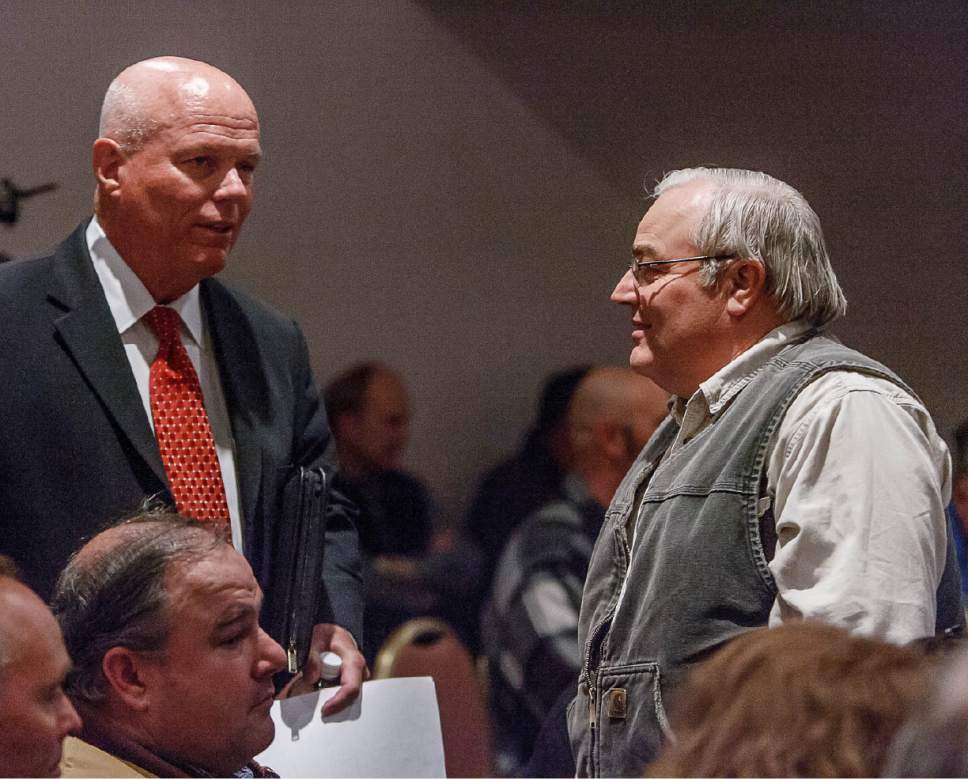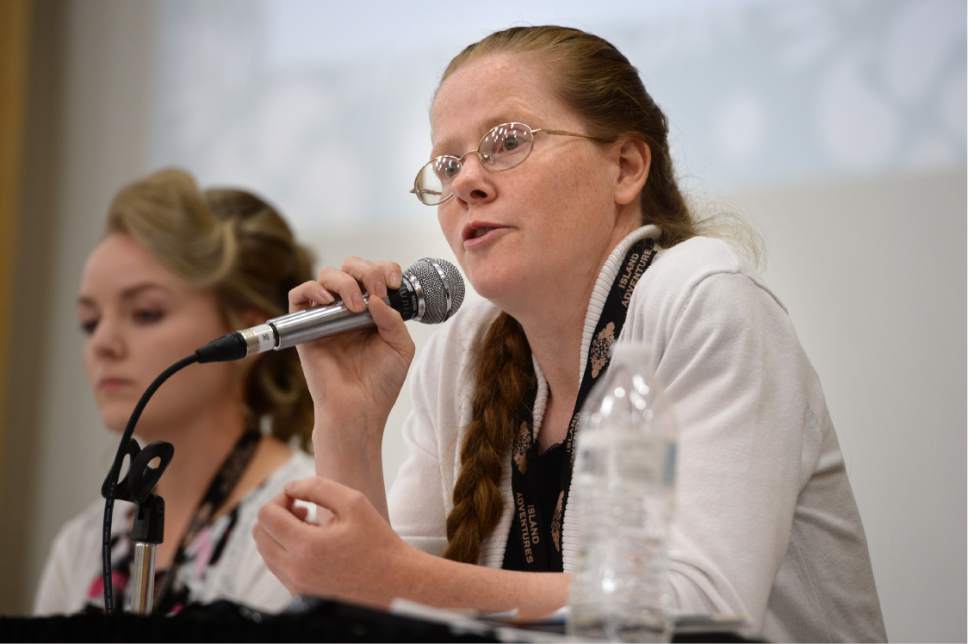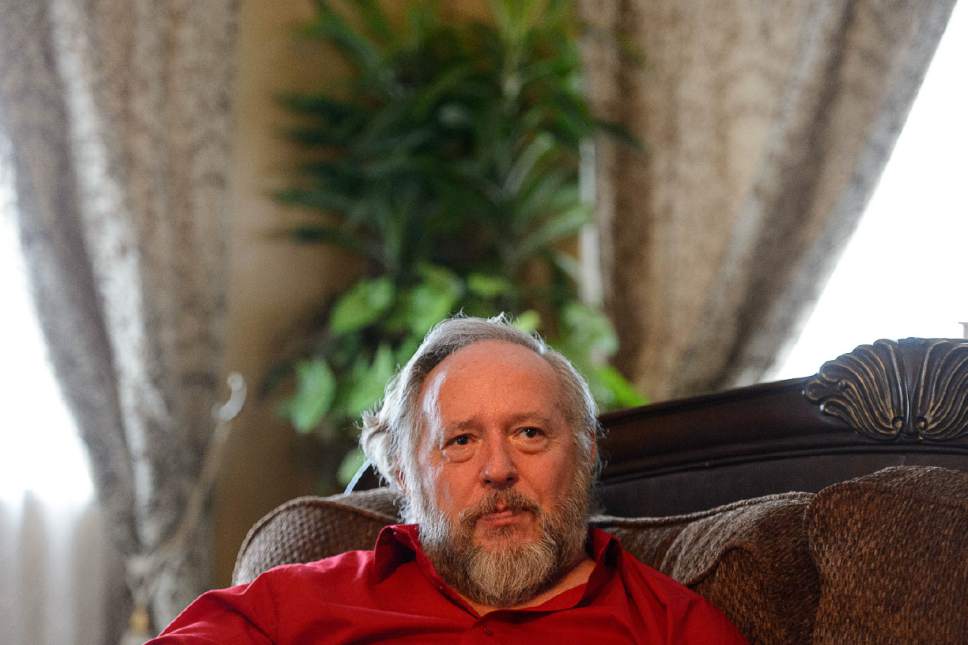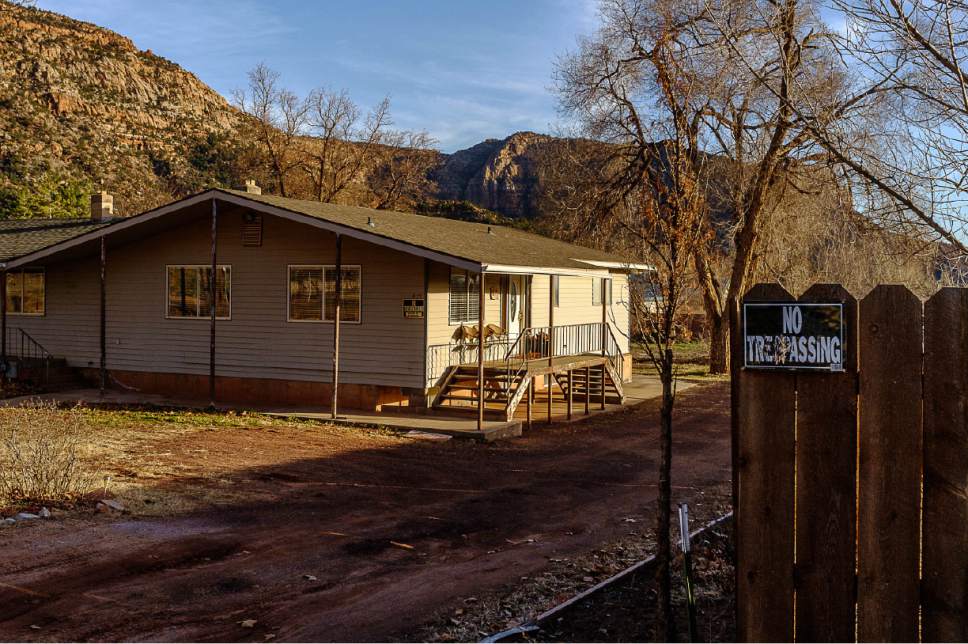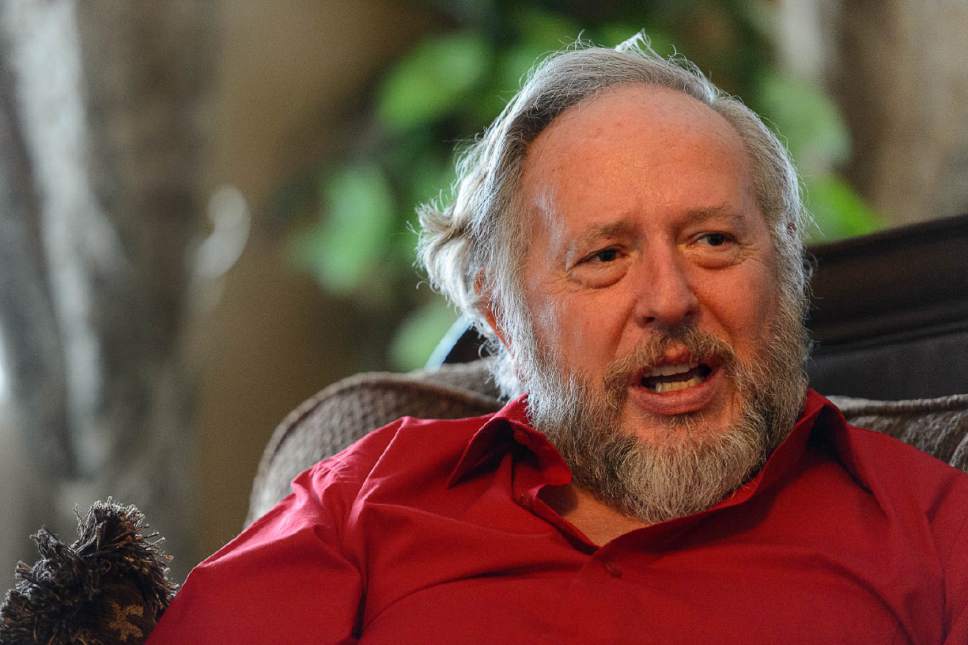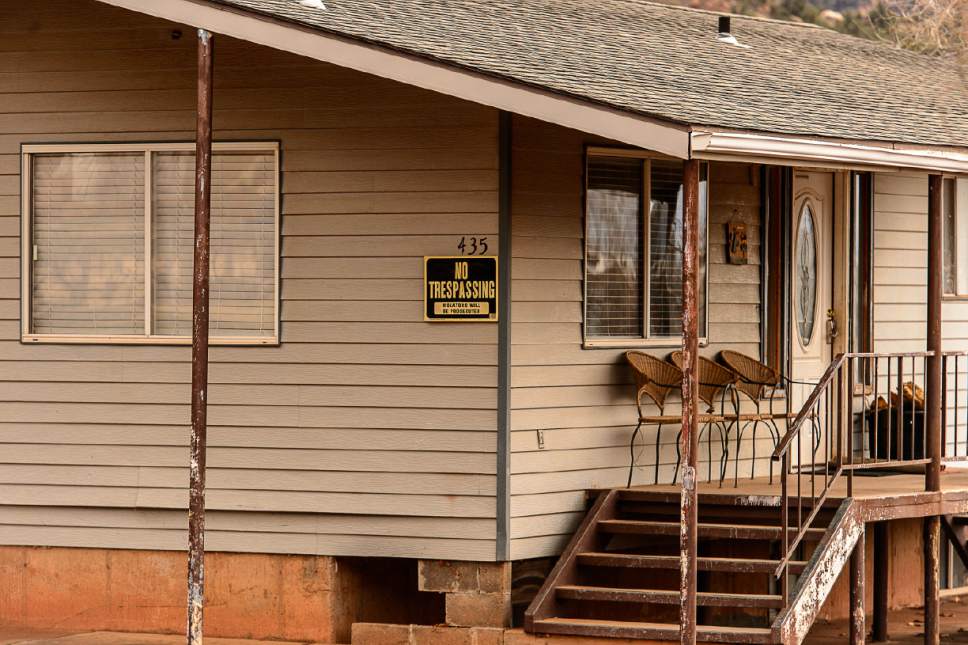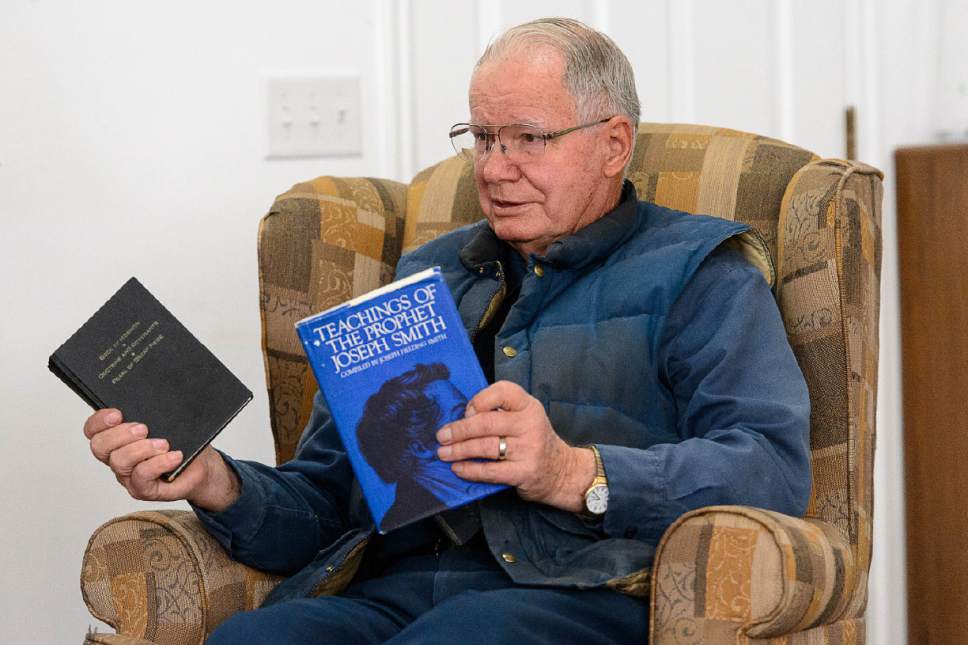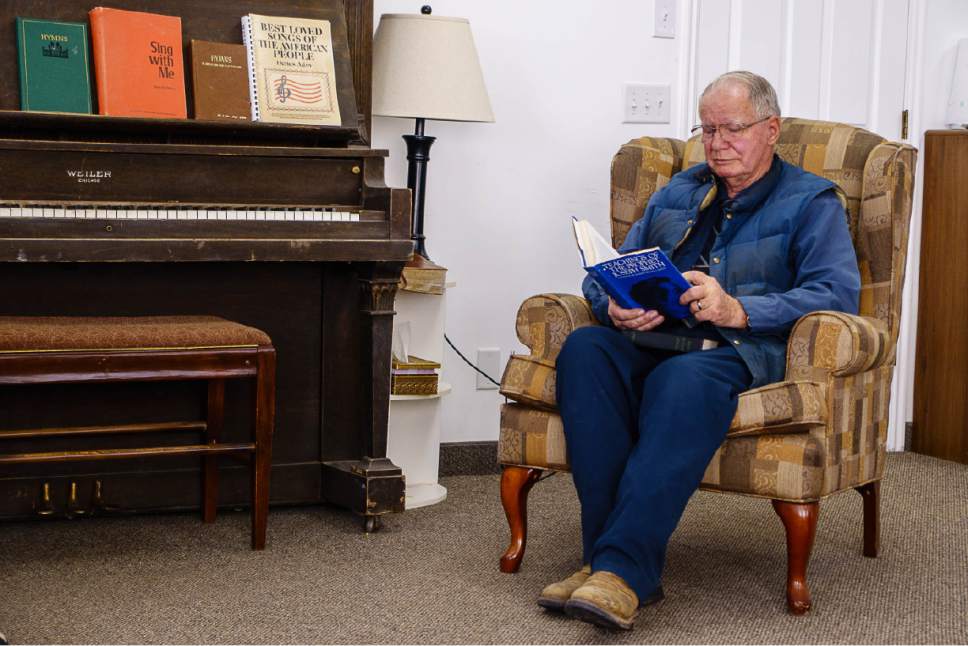This is an archived article that was published on sltrib.com in 2017, and information in the article may be outdated. It is provided only for personal research purposes and may not be reprinted.
Hildale • How does Alvin Barlow regard the prosecution of Canadian polygamist Winston Blackmore?
To answer the question, Barlow walked to a bookshelf in his home here on the Utah-Arizona line. He picked up a copy of "Teachings of the Prophet Joseph Smith." He turned to pages 49 and 50. The pages discuss the need to obey the government, but with a caveat.
"The law of man promises safety in temporal life," the final sentence says, "but the law of God promises that life which is eternal, even an inheritance at God's own right hand, secure from all the powers of the wicked one."
Barlow believes Blackmore, who is married to two of Barlow's daughters, has been obeying God's law.
"His conduct, in my estimation, is certainly not criminal," Barlow said. "Although there are statutes passed, they are not equitable and just."
Observers in two countries will be watching whether man's laws prevail against Blackmore. He and a co-defendant, James Oler, go on trial Tuesday in Cranbrook, British Columbia. Each defendant is charged with one count of polygamy and faces up to five years in prison.
There have been no successful polygyny prosecutions in Canada since 1899, according to researchers there. The law, as well as Canadian immigration and gender politics, are all factors in why Blackmore, who with 27 wives has been the most visible Canadian polygamist, is being tried now, said Melanie Heath, an associate professor of sociology at McMaster University in Hamilton, Ontario.
"You can say, sociologically, [the prosecution] fits into a broader debate going on within Canadian society about what are acceptable practices?" Heath said.
Blackmore, 60, was born and raised in Canada, but Utah has played an important role in his life. Utah figures to play a role in his trial, too.
Priesthood holder
His community in Bountiful, next to Lister, B.C., was a congregation of what eventually became the Fundamentalist Church of Jesus Christ of Latter-Day Saints. Relatives called him "Wink."
After his father died in 1974, Blackmore, according to a history he gave in 2016 at a Sunstone symposium in Salt Lake City, traveled to Hildale and adjoining Colorado City, Ariz., where he received "priesthood training" from Leroy S. Johnson, then the leader of the polygamous church there.
Johnson installed Blackmore as the bishop of Bountiful in 1980, he said.
Johnson died in 1986 and was replaced by Rulon Jeffs. He, Blackmore and others formed what became incorporated as the FLDS.
As bishop, "Uncle Wink," as he was known, was the ecclesiastical leader in Canada, gave teens and adults career advice and helped them find jobs, and advised parents on how to raise children and manage households.
Blackmore also accepted young people from the congregations in the United States and provided them with jobs and guidance.
Business records entered into Canadian courts, according to news reports in that country, suggest many people worked for Blackmore's logging and trucking businesses for long hours and low pay. But Ron Rohbock, a former FLDS member who worked for church leadership, said many young people went to Winston because he was more liberal than the American leaders, especially the Jeffs son who was a school headmaster and successor — Warren Jeffs.
Blackmore allowed dancing and dating, Rohbock said. Rohbock's own daughter ran off to Canada three times, he said.
"It pissed Warren off that people were migrating to Winston and not to him," Rohbock said.
Meanwhile, the Royal Canadian Mounted Police investigated what was going on in Bountiful. According to The Canadian Press, the RCMP in October 1991 completed a 13-month investigation and recommended polygamy charges against Blackmore and another man. British Columbia's attorney general did not file charges because of uncertainty over whether the polygamy law violated religious freedom protections in Canada's constitution.
At least a handful of Blackmore's 27 wives are from the FLDS community on the Utah-Arizona line. As of July, Blackmore had 145 children, and many of them are U.S. citizens.
In June 2002, it was Bountiful that split.
Rulon Jeffs called Blackmore and excommunicated him. The church president was ailing from a stroke and would die three months later.
Multiple accounts say the person really operating the FLDS then was Warren Jeffs, who told his father what to say as he excommunicated Blackmore over the telephone. It was one of several moves Warren Jeffs made in that era to eliminate rivals and consolidate power.
Congregants in Bountiful were forced to choose between following Blackmore or sticking with the Jeffs family. Many chose the latter, including Blackmore's co-defendant Oler. He became the FLDS bishop after Blackmore.
To this day, there remains an FLDS congregation living side by side with Blackmore and his family and followers in Bountiful.
After the excommunication, Blackmore became a vocal advocate for the rights of polygamists and insisted that the child sex abuse committed by Warren Jeffs was not the norm. He went on CNN and allowed camera crews and reporters into his home and community.
"Blackmore has admitted to practicing polygamy in a very public way, including allowing National Geographic to conduct a documentary in Bountiful," Heath said.
Blackmore's prosecution, according to Heath, who studies families, gender and sexuality issues, may be Canada's "Tom Green moment." That's a reference to the Utah polygamist who was prosecuted with bigamy and rape of a child after coming out as a polygamist on television shows like "Jerry Springer."
Public pressure to do something appears to have swayed prosecutors to file charges, she said.
—
By day and by night
In 2009, Blackmore and Oler were charged with polygamy for the first time. The charges were later dismissed over questions about whether a special prosecutor was properly commissioned. The charges were refiled in 2014.
In the past few years, Canadian law has become less tolerant of polygamy. In 2011, the Supreme Court of British Columbia ruled the ban on polygamy was constitutional. Although the ban violates the religious freedom of fundamentalist Mormons, the court said, that violation is outweighed by the inherent harm polygamy does to women and children.
In 2015, Canadian lawmakers passed the Zero Tolerance for Barbaric Cultural Practices Act. Among other things, it banned immigrants found practicing polygamy.
Stephen Kent, professor of sociology at the University of Alberta, who studies alternative religions and has published articles on polygamy, said Thursday that concerns about polygamous immigrants has put pressure on prosecutors in British Columbia.
"If you're going to enforce the law, the criminal law that's made polygamy a crime, then you have to do it consistently against all groups," Kent said. "Blackmore has been very public about his practice."
The bench trial could last four weeks. The judge is likely to issue a verdict a few weeks after the trial.
Besides the multiple investigations and charges, the government also has pursued Blackmore for taxes on what is says is $1.7 million ($1.28 million in current U.S. currency) in unreported income.
At the 2016 symposium, Blackmore was exasperated by his country's pursuit of him.
"And those suckers are after me by day and by night," he said. "I've got to go another round with them."
Blackmore's lawyer is Blair Suffredine, a former member of the Legislative Assembly of British Columbia. In an interview Thursday, he said the government must show there was a marriage and a conjugal relationship between Blackmore and the women.
"He's not going to deny his faith," Suffredine said, "but, as a lawyer, there may be some arguments I make about what the [prosecution] does or doesn't prove."
Oler, who is suspected of having four wives, was acquitted in February of a charge accusing him of taking a 14-year-old into the United States to be married. In that trial, Oler had no attorney, though the judge appointed a lawyer to make arguments generally favorable to the defense.
Zelpha Chatwin is from Colorado City and is Blackmore's eighth wife. Like Barlow, she turns to her faith to explain who she regards her husband and his trial.
"My family and I are simply trying to live the Gospel of Jesus Christ to the best of our knowledge and ability," Chatwin said in a written statement. "We are also well aware the Gospel of Jesus Christ is not of this world and persecution follows all who truly seek to implement it into their lives."
The statement later said: "I believe the Canadian people are a wonderful people and try their best to do the right thing, even if it doesn't sit well with my family's lifestyle choices. I want say, God Bless Canada and may it stand true to its values and principles."
ncarlisle@sltrib.com
Twitter: @natecarlisle


